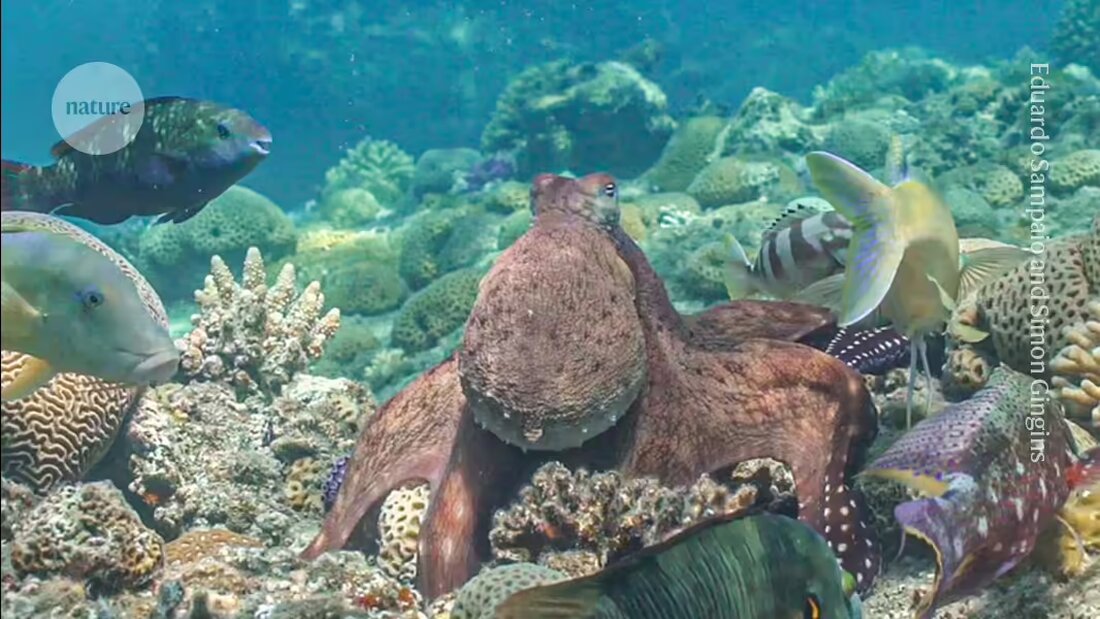Squids and fish hunt together: watch teamwork underwater
A team of divers documented how octopuses and fish hunt together to catch their prey more effectively.

Squids and fish hunt together: watch teamwork underwater
Octopuses typically hunt alone, but footage from divers has shown that they can work together with fish to find their next meal. The videos published in the journal Nature Ecology & Evolution 1 show that different species even take on specific roles to maximize the success of joint hunting expeditions.
“The octopus essentially acts as the decision-maker of the group,” says co-author Eduardo Sampaio, a behavioral scientist at the Max Planck Institute for Animal Behavior Research in Konstanz, Germany. “There are definitely signs that some cognition is taking place here.”
Although octopuses have previously been observed feeding with fish, the relationship between the species has not always been clear. Sampaio and his colleagues used multiple synchronized cameras to collect 120 hours of footage while diving in the Red Sea. They documented 13 cases of interspecific group hunting in which a large blue octopus (Octopus cyanea) worked together with different fish species to find and capture smaller fish and molluscs.
Each of these scenes suggested complex group dynamics, with different species taking on different roles. Grouper (Parupeneus spp.), for example, tended to encourage fish of other species to move forward and explore new environments, while octopuses were more likely to persuade the group to stay in a particular location. “The other fish offer several options, and then the octopus decides which one to choose,” says Sampaio. “There is this element of shared leadership.”
The octopuses also appeared to adapt and respond to different situations. In some groups, certain fish species – particularly blacktip groupers (Epinephelus fasciatus) – were opportunistic and attached themselves to the group without helping to find food. In some of these cases, the octopuses “hit” these opportunists with their tentacles, in what appeared to be an attempt to punish them or force them to leave the group. Sampaio says the team is interested in studying whether octopuses can recognize individual fish that have previously exhibited opportunistic behavior.
The work is "really fascinating" and helps researchers better understand "what drives groups of completely different species to stay together," says Hannah MacGregor, a behavioral scientist at the University of Cambridge in the United Kingdom. More studies are needed to explore how group dynamics differ between different environments, she adds.
-
Sampaio, E. et al. Nature Ecol. Evol. https://doi.org/10.1038/s41559-024-02525-2 (2024).

 Suche
Suche
 Mein Konto
Mein Konto
